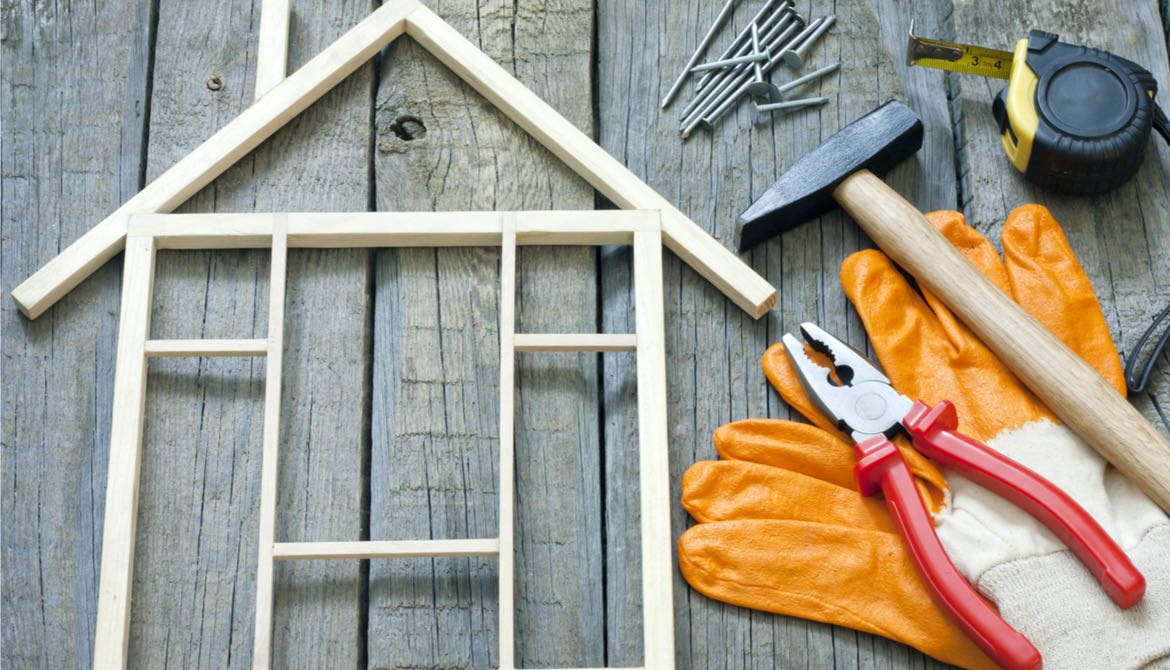5 minutes
Arkansas CU offers options to homeowners who may not qualify for home equity loans.
In this bigger-is-better world, sometimes it’s beneficial to remember the small(er) things credit unions can do to help their members. Mortgages are a major source of income for financial institutions, but what if your member already owns a home and needs help with renovations?
Telcoe Federal Credit Union, Little Rock, Ark., has been offering a solution since 1968, when CEO Sarah Mosley, a CUES member, heard about a home improvement loan product and thought it would be a good to help homeowners in the area.
Karla Walls, mortgage manager for the $354 million CU, says, “Back then, there weren’t equity loans, so there wasn’t that option for a second mortgage. So you were doing some kind of unsecured loan. In 1970, the average cost of a home was $10,000. … A member called in because they were getting water to their neighborhood and needed to cover the cost of the line to reach the city utilities. This could exceed $3,000. Unsecured loans in that amount were not heard of at the time.”
Telcoe FCU got approval for its FHA first mortgage program in the early 1980s; it was easy to go through the process again for home improvement lending. “It gave us the opportunity to offer home improvement loans without having to worry, since these are insured by FHA,” explains Walls. “The only risk we have is 10 percent of the loan.” The maximum loan amount is $25,000 for a private residence.
Common reasons for home improvement loans at Telcoe FCU include paint, flooring and updates to electrical. “Anything that’s not a luxury item. No hot tubs!” quips Walls. (The loans can be used for “any improvements that will make your home basically more livable and useful,” according to HUD.gov, which includes appliances but not things like swimming pools and fireplaces.) The CU has also made loans in conjunction with grants from the city of Little Rock to help bring historic houses up to code, especially those owned by senior citizens or people with low income.
Telcoe FCU also offers resources and advice to members seeking help with certain kinds of home improvement. For example, if homeowners want to reduce their energy bills, credit union staff will let them know about programs from local utility companies, such as Entergy Arkansas Inc. and Centerpoint Energy, to help bring down costs. “They’ll do this for free,” says Walls. “They’ll go to your house and let you know where you could make energy savings. Then members get a discount on their energy bills, and we can offer them a loan for the improvements.”
Home equity loans have since become commonplace, but there are still reasons to consider a home improvement loan instead. First, home equity loans aren’t quite as attractive as they once were; with the new tax law that went into effect this year, there is no more interest deduction on HELOCs and other home equity loans on a principal residence. Second, it's not always possible to get a home equity loan, depending on the member’s type of residence and the market.
“This product helps you find a way into a market [like mobile home communities] where you might not otherwise have a foothold,” adds Walls. “FHA's underwriting guidelines are more flexible, so you can insure a loan for somebody with a 615 [credit] score, and it gives you peace of mind. You want to be able to offer them something, but you don't want to go out on a limb in an unsecured fashion.
“When the housing crisis brought home values down, it left members without equity,” explains Walls. “Members may have put 10 to 15 percent down on home in 2007 and, in 2017, the home is only valued at what is owed. There is no equity available, and members need an option for emergency repairs, such as for heat and air [conditioning] units, roof repairs or other updates.”
The loan product is also helpful in a situation common to that area of the U.S., being on the edge of Tornado Alley where mobile home owners often need to build separate storm shelters, since they lack cellars or other storm-safe rooms you might find in a traditional home. Such shelters can cost anywhere from $4,500 to $6,000.
“We started the program working with storm shelter companies,” says Walls. “We have quite a few loans in that area. If you have somebody who lives in a mobile home where you can't offer a traditional home equity loan, you can offer this small loan, so they can do improvements. … The regulators and examiners don't want you loaning on those things, but this gives us a way to give those members an option.”
In 2017, Telcoe FCU loaned about $470,000 to members through the home improvement program. The marketing message to new homeowners is simple: “You just bought your house, and you don’t have a lot of equity. Here’s an option that lets you do the improvements your house needs.” They include reminders about the product in the CU’s regular newsletters and email blasts, but there are certain times when the weather does the marketing for them.
“In summer, our big ones are for air conditioning units,” notes Walls. “You can get those [loans] through quickly. You're not dealing with a mortgage, so you don't have those seven-day waiting periods. That's a nightmare! If you can do a loan and not deal with the wait, that's a good thing.”
Danielle Dyer is CUES’ assistant editor.






